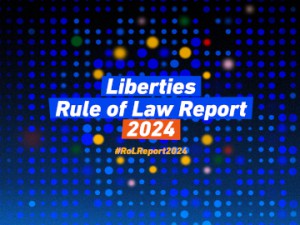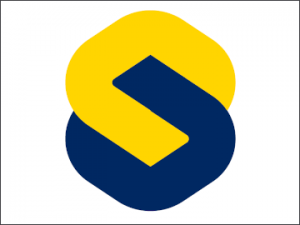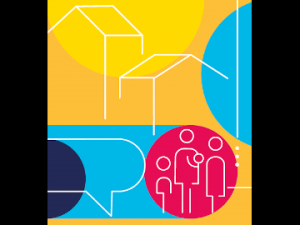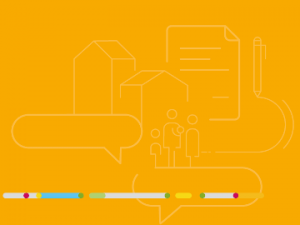Significant changes in the treatment of refugees
18. 2. 2016 | Human Rights and Minorities, Politics
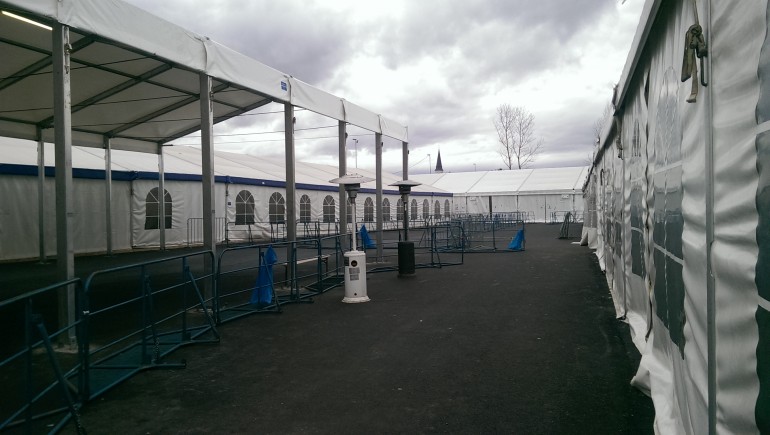
In recent days we have seen alarming new policies, governmental decisions and practices in refugee reception and accommodation centres in Slovenia.
In recent days (until 16 February) 217 persons, including those coming from Syria, Iraq and Afghanistan (SIA countries), have already been rejected and returned to Croatia, from where they have been returned (chain of returns) to Serbia. However, Serbia then announced that it will not accept any more persons, because Croatia and Slovenia, by allowing people to come to their territory, must take responsibility for these persons.
In the reception centre in Dobova, everyone coming from non-SIA countries are automatically rejected, irrespective of their personal circumstances. Among the rejected persons there are also citizens of SIA countries if their answer to the tricky police questions is not “correct” in view of the police officers’ opinion.
At the same time, the International Protection Act is being amended, which means it is becoming even more restrictive. One of the government’s arguments is probably (also) their fear of a large number of applications for international protection. Up until now, the statistics do not confirm this at all. From September 2015 until the end of January 2016 there were 162 applications for international protection, and in the same period one year ago 164 applications were lodged. Now, in February 2016, the number of filed applications is around 90, which is still, in comparison with other countries, a very small number.
The Government of the Republic of Slovenia has also adopted the Decree on establishing the list of safe countries of origin on the basis of Article 65 of the International Protection Act. According to the government, these safe countries of origin are: Albania, Algeria, Bangladesh, Bosnia and Herzegovina, Montenegro, Egypt, Kosovo, Macedonia, Morocco, Serbia, Tunisia and Turkey.
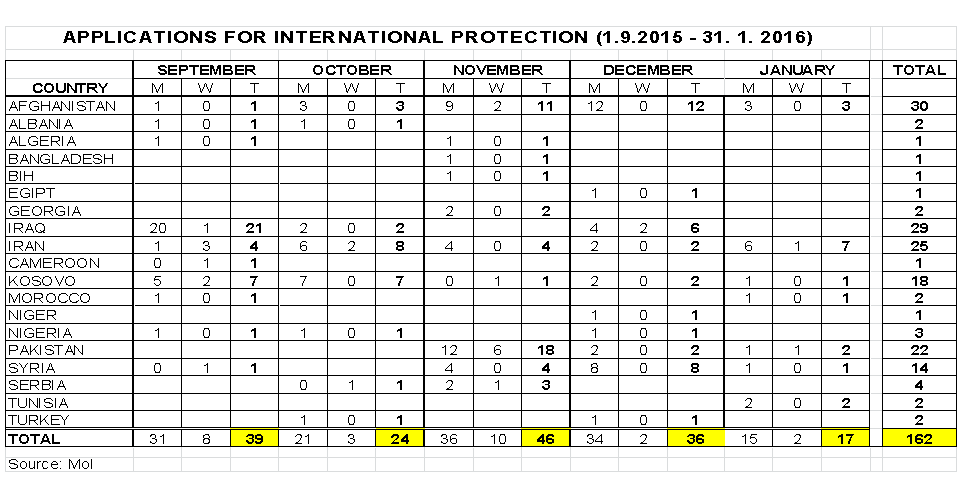
Dobova
It is a novelty from just a few days ago that from now on only refugees from Syria, Iraq and Afghanistan (SIA) will be able to continue their way within the current corridor, while everyone else will automatically be rejected and returned to Croatia. These people (from non-SIA countries) could apply for international protection in Slovenia, but the police have radically limited the opportunities and space for providing information on international protection to representatives of organizations that are present on the ground, including the Office of the United Nations High Commissioner for Refugees (UNHCR). The instruction from the police was that people can be given information only upon arrival of the train at the railway station and before registration process in a reception centre in one tent.
How does this look like in practice?
At the train station, when a train arrives and the police immediately begins to direct people towards and onto the buses, information provision is practically not possible. In some minimal form, translators, if present (which is not always the case, while often there is only one translator for Arabic language available), can inform people through windows of the train wagons, but only a minority of people hear or register this information because they are packing their belongings, moving toward the door, following the group, and wish primarily to quickly move forward. There is no time or space for a discussion and actual information provision about their options, on the procedures, and on the international protection.
When people arrive to the reception centre Livarna, the police initially used to divide them into two groups: those with valid passports and those who do not have identity documents. Until recently, all in possession of documents immediately went to registration, however in the last few days, this applies only for Syrians, Iraqis and Afghans. Organizations that are present on the ground to inform people no longer have access to these people; neither to those who are “successfully registered” and waiting to go to Austria nor to those who are rejected during the registration procedure. The latter group is then also physically separated from the rest. Thus, people have very limited access to important information and, consequently, are not aware of the actual situation until it is too late. When people go through registration process, the police no longer allows them to apply for asylum in Slovenia, even if they express this wish clearly and loudly (even if they scream “Asylum, asylum” and try to speak to representatives of organizations that are present, including UNHCR). Representatives of various organizations do have access to the other group of people, those who do not have valid documents, however a very limited one. They can walk only at the edge of the tent, in a kind of narrow corridor between the fences. They are not allowed to go among the people, talk to them, or actually provide them with any information or answer their questions. It is imperative to note that also here, people should still have the option to apply for asylum in Slovenia.
All these restrictions on movement and communication with refugees have an influence also on the most vulnerable group – the unaccompanied minors. If the representatives of the UNHCR or other organizations spot individuals or groups which seem not to have any adults around, they check such cases with the help of translators. If it turns out they are minors and traveling alone, the first attempt is to call parents or relatives, and then to assess what would be in their best interest. Most often these minors are then registered together with some adults or families (if they agree to this) and they continue their way together. When this is not possible, or if children are very young, they are not allowed to continue their way to Austria, but are kept in Slovenia. Until recently, UNHCR representatives were fully involved in the treatment of these children, but in the last few days it is noted that these cases are now mainly dealt with by the police and Centre for Social Work (i.e. social services). Minors who are detained in Slovenia are mainly transported to the Aliens Centre in Postojna, which is a closed institution (like a prison) and is not suitable for the accommodation of children.
In this area (in the first tent), where people without valid documents are kept waiting, some kind of “pre-registration” is underway. Until recently, this meant only that the police officers reviewed the papers that people got in previous states. With the help of translators they checked if the information is true and they corrected the mistakes (the misspelled or incomplete names, incorrect data on the country of origin, etc.). In recent days, police officers are asking various misleading questions (and forcing translators to translate these questions), and based on the answers they then decide who can go to the registration and who is rejected immediately without even having a chance to go to the registration process.
According to the testimonies of refugees and volunteers, deliberately misleading questions that people are receiving are: “Why do you want to go exactly to Germany?” If the person replies that because he/she has relatives there, for the police officers this is sufficient reason to reject this person. The answer should be only that he/she is fleeing from Syria because of the war, and in Germany he/she wants to apply for asylum. If any of the younger people – also from SIA countries – is asked (after they have “correctly” answered that they are fleeing from war and wish to seek asylum in Germany): “So, what do you think you’ll be doing then in Germany?”, and if the person answers he/she would like to study or complete schooling, again this is the reason for rejection because the police concludes that the reason for this person to travel to Germany is because of education, which is not a legitimate reason to be able to continue the path. If someone else replies (in the belief that he/she will point out that he/she does not want to be dependent on the welfare state, but will attempt to find a job and provide for oneself and the family) that he/she will look for a job, the police concludes that such a person wants to go to Germany for economic reasons, which is again a reason for being rejected.
In addition, police officers demand from translators to “estimate” if people who claim to be from SIA countries really come from there on the basis of accents or dialects of the language they speak. Translators are not trained for such assignments and should not be required to do this. We emphasize that such practices of the police are completely unacceptable.
People who are from SIA countries and pass the registration process successfully, are then directed onto buses or a train, and they go to Austria. Until recently, there were three possible routes: by train through Jesenice, by bus over the Karavanke, and by train or bus to Šentilj. Now, the only exit point from Slovenia is Šentilj. All the others who are rejected are either immediately returned to Croatia, or are isolated in a separate tent, where they then await transportation to Croatia or to the Aliens Centre in Postojna. The police does not allow anybody to access these people, except if they are waiting for several hours and the police allows humanitarian organizations to give them food. Even if people are screaming, crying or shouting “Asylum, asylum,” the police ignores them and prevents others to respond to their calls.
In addition to preventing people access to the asylum procedure on the basis of nationality, Slovenia also actively discourages people from filing asylum applications, and even prevents some from doing so despite their clearly expressed intent.
Šentilj:
In the accommodation centre in Šentilj the general atmosphere and climate is significantly different than the one in a reception centre in Dobova. There are probably several reasons, but among them a significant one may be that the centre is managed by the Civil Protection and not the police, and that it is an exit point from the country, while Dobova is an entry point to Slovenia.
When refugees arrive by train, they are accompanied by police and volunteers to the centre. Certain groups of people are immediately directed to the Austrian border, while others stay in the centre for a few hours, where they can get a hot or cold meal, clothes or other necessities, there is wi-fi and electricity to charge telephones, running water, they have access to medical care, separated part of the tent for women for breast-feeding or changing, for children there is special place where they can play and “relax”. There is also some outer space, where people can stay/walk or play football together with translators. In Dobova, people are not supposed to stay outside the tents unless they go to the toilet.
The Austrian police informs the Slovenian police how many people may be sent to the border at what time or at what time intervals. Thus, in principle, people do not stay in the centre in Šentilj for longer than a few hours. Except, of course, all those whom Austria prevents from entering the country and returns to Slovenia; these people (and exceptionally some other groups) then stay overnight at the accommodation centre.
Similar unacceptable practices, as we have been observing in recent days in Dobova, have been reported for quite some time now by the people that were rejected by the Austrian police officers. Entrance to Austria is rejected on a daily basis – for the same reasons as described above for Dobova – to larger or smaller groups, which are then returned to the centre in Šentilj. The police places these people in a separate part of the refugee camp. Until recently, volunteers and representatives of international organizations had access to these people, but now they are prevented from doing so also in Šentilj. Until now, the representatives of these organizations could also inform these people about the international protection legislation in Slovenia, which is clearly no longer possible. The police gave them instructions to inform people only directly at the border, as refugees are returning from the Austrian side. Some of the people that were returned by Austria decided to apply for asylum in Slovenia, however, the majority of those rejected have so far not decided to do so. They therefore get a decision on placement in the Aliens Centre and are taken to Postojna, and now possibly also to Lendava. Those who decide to apply for asylum are taken to the Asylum Centre in Ljubljana.
As the main current problem, the media report on daily quotas introduced by Austria. They do not check the number of people passing through Slovenia to Austria every day in the last couple of months. If they did so, they would have seen that for nearly two months 3.200 people – as is the new Austrian quota – were not passing on a daily basis. Numbers are much smaller on average: from about 600 to 2.800. The quota of 3.200 therefore, in practice, at the moment does not present any change.
However, the other daily quota imposed by Austria could maybe mean some changes in practice. Austria claimed that from 19 February it will accept only up to 80 asylum applications per day. It is unclear how Austria will implement this in practice, but this could mean that the 81st person who expressed an intention to seek asylum in Austria will automatically be rejected and would not have a chance to apply for asylum in Germany. At the same time, it should be checked how many people applied for asylum on a daily basis so far in Austria, to really estimate if the quota means any change in practice.
Lendava:
The accommodation centre in Lendava is in use again from Monday 15 February, when 55 men who were rejected by Austria were taken there from the Aliens Centre in Postojna. The reason that these people were moved from Postojna is that almost 200 (rejected) people were already there. The capacities of the Aliens Centre count around 250 beds; however, until recently a very small number of people were detained there at the same time (about 10). According to the testimony of those men who were accommodated in the centre in Lendava, some were detained in Postojna already for 25 days. No one knows what will happen to these people, where will they be returned, to Croatia or to the country of origin, if that is even possible. It is however clear that this is not possible at least for those coming from Syria, Iraq and Afghanistan. These people in Lendava are without any concrete information, and apparently neither police officers nor present organizations have any information. Nobody also knows when any of the returns will be carried out.
It was said that people in this centre have access to information about international protection in Slovenia. Yet the problem is that according to the instructions of the police the information given is that they can apply for asylum in Slovenia but if doing so they will be returned to the Aliens Centre in Postojna, where they will be detained until their applications are rejected, and then they will be deported to their countries of origin. Providing such information is entirely unacceptable. Police officers, who are present in the accommodation centre, are not qualified to comment on the asylum procedure and to claim what the decision at the end will be. This is especially controversial in cases where people are from countries that were not put on the list of so-called safe countries. Among the people who have received such information were also citizens of Syria, Iraq and Afghanistan.
The centre is managed by Civil Protection and the same managerial person is also the head of the local Red Cross, which is also responsible to provide for the people there. There are also Caritas, Slovenian Philanthropy, UNHCR and representatives of the PIC in cooperation with UNHCR in the centre. In this camp there are heated tents, folding beds, people get food and, if necessary, also medical care. They cannot however take a shower, even though they are there already the fourth day. Considering the fact that a specific group had been placed there (single men that were rejected to enter Austria), the atmosphere in the camp is very tense, people are desperate and frustrated, because they do not get any concrete information and do not know what to expect.
On the first day, four men fled from the camp. The police realized this the next morning during breakfast. Two men have been found in the fields and brought back by the police, one man returned to the centre on his own, while the fourth man is still missing. Even without this event the attitude of the local community towards refugees and migrants was extremely negative. Now, after reactivating the accommodation centre in Lendava, a part of the local population called on the mayor to resign and demanded the closure of the centre in their municipality. Considering the fact that only rejected persons and/or those that have previously been detained in the Aliens Centre, and in addition, so far only single men have been placed in Lendava, we can only expect more negative attitudes of the local population. The centres location being in the industrial zone of Lendava probably did not influence the daily life of the locals, but it is clear that a lot of fear, prejudice and intolerance is present among the population.

